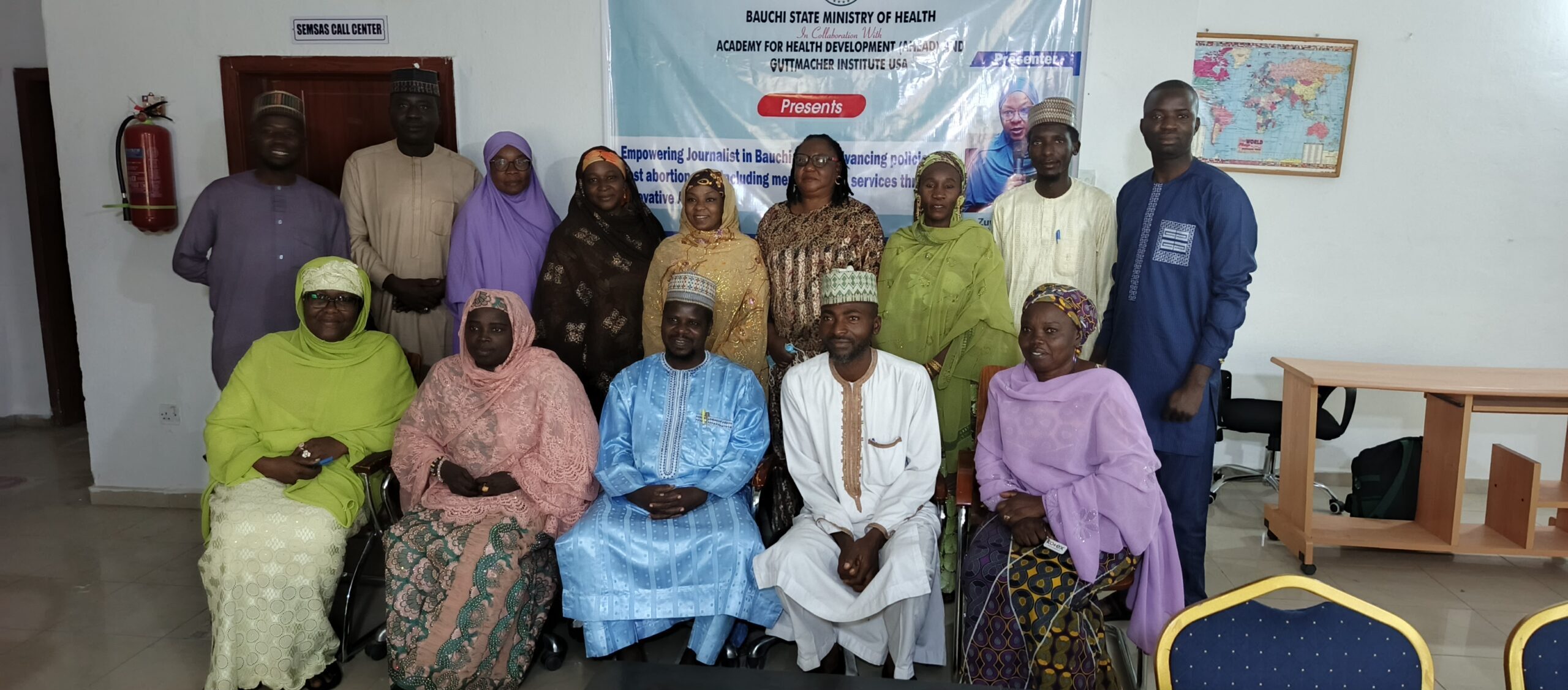The need for government, especially at the subnational level, to make specific fund allocations to mitigate the negative impacts of sexual and reproductive health (SRH), post-abortion care (PAC), and mental health issues has been stressed.
The call was made during a one-day meeting with stakeholders and journalists on advancing policies on SRH, post-abortion care, and mental health services through innovative advocacy, organised by the Bauchi State Ministry of Health (BSMOH) in collaboration with the Academy for Health Development (AHEAD) and the Guttmacher Institute at the SMOH Conference Hall in Bauchi.
The participants also recommended a significant increase in investment through advocacy for more funding by both government and donors, as well as increased awareness creation and community mobilization through male engagement.
They further recommended providing capacity building for relevant stakeholders, especially media professionals, on reporting issues of SRH, PAC, and mental health.
Additionally, there should be a strengthened legal framework in the state on SRH, PAC, mental health, and gender-based violence (GBV), as well as the provision and scale-up of training and retraining for healthcare workers on mental health, PAC, SRH, and other relevant services.
Earlier in her presentation, Zuwaira Baba, Fellow at AHEAD – Guttmacher Institute, pointed out that sexual and reproductive health services include access to information and services on prevention, diagnosis, counselling, treatment, and care, which require that all people can safely reach services without difficulties (Chaltu, 2022).
She also stated that good sexual and reproductive health is a state of complete physical, mental, and social well-being in all matters relating to the reproductive system (UNFPA, 2022).
Speaking further, Zuwaira Baba, who is the Gender Desk Officer of the Ministry of Health, explained that maternal health services include contraception, prevention of unsafe abortion, SRHR & HIV linkages, gender equity/equality, and rights.
Furthermore, she explained that Post-Abortion Care (PAC), including mental health support, is critical but often overlooked as a reproductive health service (WHO PAC Guidelines, 2022).
According to Zuwaira Baba, limited access to quality PAC services for the majority of women in Nigeria is due mostly to health system weaknesses, lack of training, and inadequate PAC equipment and supplies (African Population & Health Research Centre, 2021), which is an issue that must be tackled head-on.
She lamented that fewer primary healthcare facilities in Nigeria, Kenya, and Burkina Faso had the capacity to deliver on all basic components of Basic PAC (Juma, Ouedraogo, Amo-Adeji, Sie, Eton & Bangha, 2022), just as co-morbidities resulting from SRH/abortion complications include depression, stigma, isolation, etc.
On Post-Abortion Care (PAC), she stated that abortion, either spontaneous or induced, may be associated with complications that constitute global public health challenges, especially in developing countries.
She added that abortion is one of the most important direct medical causes of maternal mortality, accounting for 12-49% of overall maternal deaths, despite Nigerian laws indicating that abortion is a criminal offence unless medically indicated (Penal & Criminal Laws).
On Sexual Reproductive Health and Mental Health, she stated that both are important aspects of overall well-being and are closely linked, stressing that changes in SRH can impact mental health, and mental health challenges can increase SRH vulnerabilities.
According to WHO, one in every eight persons around the world is living with a mental health condition.
The mental health burden is also affecting an increasing number of adolescents and young people, including persons with disabilities while changing hormones during menstruation, pregnancy, delivery, and/or abortion can cause mental health conditions (Women’s Health Journal, 2021).
Also, 20% of the population of Nigeria suffers from some form of mental disorder, including stress, anxiety, depression, isolation, and schizophrenia, which can lead to risky sexual and anti-social behaviour, sexual violence, substance abuse, etc.
Zuwaira Baba added that suicide is the fourth leading cause of death among 15-29-year-olds, and people with mental health conditions die prematurely, as much as two decades early, due to preventable physical conditions.
In order to achieve set objectives on SRH/PAC, Mental Health, and Media, there must be accurate and authenticated data, effective communication, unambiguous channels of communication, removal of barriers to communication, and the communication of public health concerns, especially SRH/PAC and Mental Health.
Some of the challenges include minimal investment by the government and donors, limited awareness creation/community mobilisation on SRH, especially PAC and MH, low knowledge on how to report, minimal effective legal services, and a limited number of experts, particularly in Mental Health.
READ MORE FROM: NIGERIAN TRIBUNE






